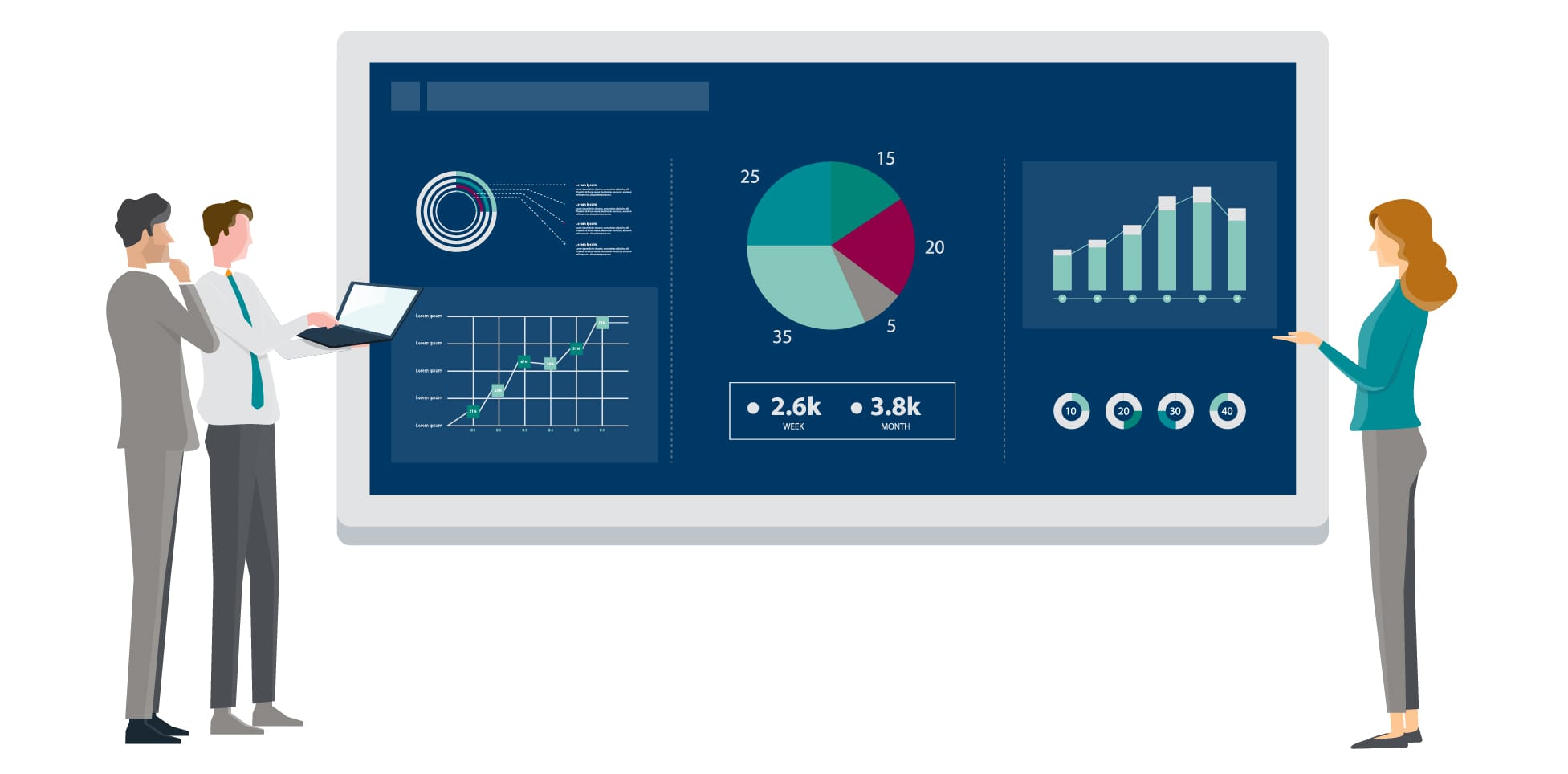Insights for Accounting as They Close the Books on 2020
Blog post
Share
This year was a landmark year for global business, and the way organizations conduct their operations will never be the same. Each industry coped with the impact of COVID-19 differently; the retail and restaurant industries moved the majority of their operations online, while the power and utilities industries worked overtime to power more residential areas as everyone relocated to their homes, as well as support essential businesses like grocery stores and hospitals.
As a department, the Office of Finance was especially impacted by the pandemic. The mettle of accountants was tested as they completed each close period virtually from their dispersed locations and raced to produce the required data insights to guide the organization through the economic ramifications of COVID-19. However, the pandemic also revealed that traditional accounting approaches were not flexible enough to support the Office of Finance throughout the year.

COVID-19 Forced Many Companies to Accelerate Existing Technology Projects
The Office of Finance is no different. A study by The Hackett Group found that nearly 80% of organizations were accelerating their finance automation projects. Whether finance leaders accept it or not, the wave of finance automation accelerated by COVID-19 will undoubtedly affect organizations in some way or another.
As the Office of Finance begins to close the books on 2020, it is important to keep a few things in mind as we begin to strategize for 2021.
The “Status Quo” Isn’t Enough Anymore
Manual approaches and spreadsheets that have been the “status quo” in accounting teams for decades are not sufficient tools for the future – and the move to remote environments this year proved that. These outdated processes don’t offer virtual work capabilities, which many teams struggled with after they were forced out of their traditional in-office environments. For many companies, virtual work is here to stay.

Many companies will likely adapt to a hybrid model of work behavior— split between working in a traditional office environment and a virtual setting. Other companies have already declared a permanent work-from-home operational model.
Not only do spreadsheets and manual processes make virtual work difficult— some might even say impossible— but they come with significant risks for organizations. A 2019 Forrester Research study found that companies are knowingly exposing themselves to financial and reputational risk by overlooking spreadsheets vulnerabilities.
“[Spreadsheet] risk is real—and many frontline workers recognize this. However, nearly a third of respondents noted that management doesn’t recognize this risk, underscoring the fact that C-level executives are making decisions based on data assumed to be accurate, but that can contain errors.” —Quote from 2019 Forrester Study
Data has shown that 88% of spreadsheets contain errors, and many companies took unnecessary hits during COVID-19 because of this finance tool of choice.
By Ignoring Finance Automation, Your Organization Falls Behind
Financial automation offers organizations the flexibility and support they require whether in crisis mode or regular operation. With finance automation, the Office of Finance gains:
- Enforced workflow standardization
- Proper testing of controls
- Full visibility into the progress of the close
- Advanced data analytics capabilities
- Shortened time to close
These factors work together to enhance the accuracy and timeliness of financial reporting. Not only that but providing regular, accurate insights allows organizational leadership to have confidence in the critical business decisions they are making. All of this offers the organization a sharp competitive edge that finance teams functioning with spreadsheets can’t provide. If you haven’t automated, your organization will likely fall behind competitors in the market.
Assessing Technology Investments is a Top CFO Priority for 2021

In August, a Forbes article identified the assessment of “potential people, process and technology investments” as a main CFO priority for 2021. Jim DeLoach, a managing director for Protiviti, emphasizes the benefits that automating and optimizing financial processes brings to organizations for the future.
“…CFOs are weighing investments in a variety of data governance improvements along with advanced financial planning and analysis tools, robotic process automation applications, artificial intelligence, and blockchain technologies. Changing tomorrow starts now – and should have started yesterday.” –Jim DeLoach, Managing Director at Protiviti
The Office of Finance must analyze and evaluate their 2021 priorities to include financial automation initiatives. COVID-19 has revealed that the “status quo” of spreadsheets and manual processes are no longer sustainable for the Office of Finance. Digital technology initiatives, such as financial automation, are here to stay and organizations that haven’t yet begun investing in financial automation need to seriously consider starting soon.
Learn more about why spreadsheets and other outdated processes are a problem for your financial close.
Written by: Ashton Mathai


